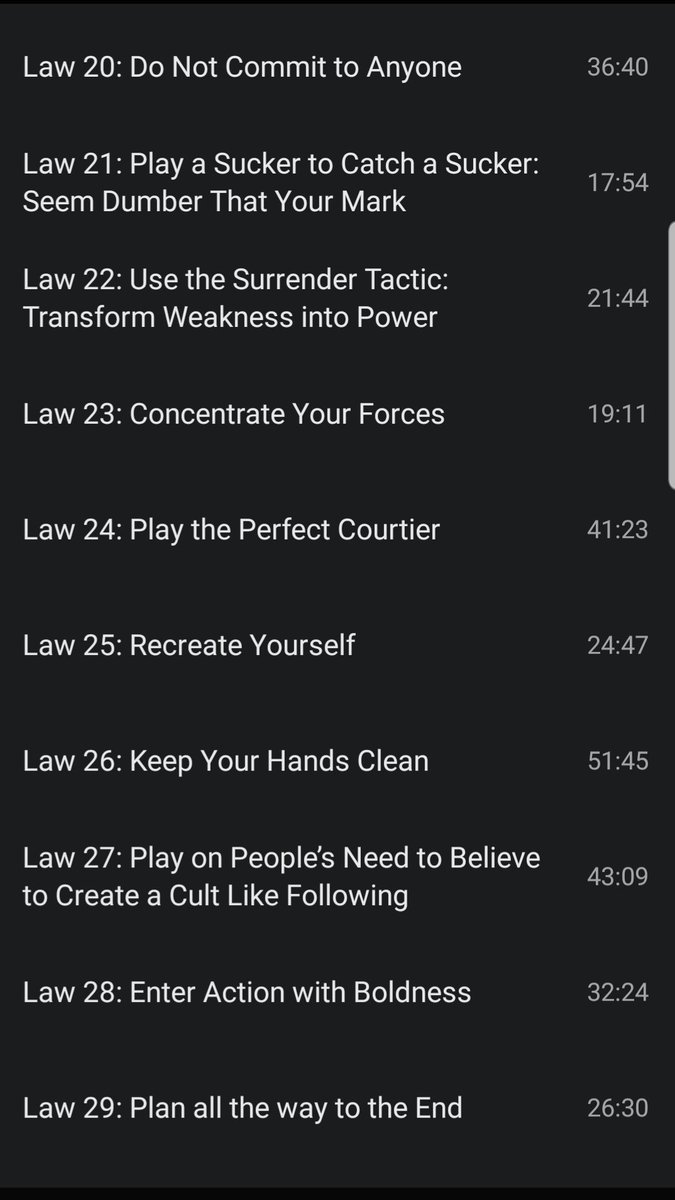
If you’ve ever had a terrible boss, a scheming co-worker looking to throw you under a bus, a manipulative friend or a terrible relationship in which your heart was broken, this is a podcast you should listen to. It is only then that these leaders realize what they had read were 48 laws of vanity.The world is an unfair place, but anyone can even the playing field using the 48 Laws of Power. Some have endured the embarrassment of being smoked out of holes and bunkers where they had sought refuge. True to his word, history is replete with stories of how strongmen and dictators have been hauled out of offices. According to him, the destiny of tyrants and great military rulers will always end in ruins. Samuel Johnson a renowned literary critic and poet in his book titled "Vanity of Human Desires” took a dim view of power wielded by kings. Jesus on his sermon to a young rich man wondered what could profit a man to gain the whole world but lose his own soul. Yet Socrates was not the only prominent figure to sneer at the primitive acquisition of material things. It is this pursuit that saw him pose this question to Athenians: "What is the point of investing in battleships and city walls, unless the people building them and protected by them are happy?." As a result, he embarked on a lonely pursuit to implore on Athenians to disregard a life of pursuing worldly things and instead pursue wisdom. He derided their raw appetite for power and riches. The above contradictions give credence to the argument that Robert Greene's nuggets are not based on any research but wild canal imaginations to gratify personal egoistic needs.ĭuring his time, Socrates was disappointed with the selfishness of his fellow citizens. The catchphrase here being that it is not practical to court attention without divulging some of your secrets and intentions to the public. Robert Greene uses law three to advice his readers to conceal their intentions yet through law number six he advices the same readers to court attention at all costs. The only justification that may let him off the hook on the accusation of contraction is if he meant fraudulently guarding reputation which then a gain takes away the meaning of word 'reputation' For instance, the law of power number five states that "So much depends on reputation, guard it with your life" while number seven he states that "Let others do the work but take the credit" The issue here is that you cannot build any reputation by living off other people's sweat. Reading through his book, I was able to single out some of these contractions. This insincerity, according to these critics, stems from the fact that he has contradicted himself from the first chapter to the last.
#48 laws of power chapters how to#
What can be gained from a book, which according to me, is nothing but a guidebook for oppressors with clear footnotes on how to fulfill unbridled bodily desires and appetites?Ĭritics have often accused Robert Greene of insincerity.

According to Plato, human body has three parts: bodily desires, spiritual needs and knowledge.

In his book ‘The Republic’, Plato in his formulation of what he called utopian society, used the analogy of human soul to describe what the society needs and which role each one of us can play in advancing the good of everyone in a state. The bumper sticker messages highlighted in this book are high on fantasies but low or zero on solid moral values.

Indeed, its simplicity and chronological enumeration of 48 laws makes the book easy to read even to laziest of readers. But it is the attempt by some literary enthusiasts to pass it as a book worthy of literary attention that disappointed me. It has also been recommended for those keen on surmounting hurdles in their workplace to earn a seamless meteoric rise in rank to the top. 48 Laws of Power has been viewed by many as a must read for those who aspire to occupy political positions, making it the most quoted book in political discourses.


 0 kommentar(er)
0 kommentar(er)
